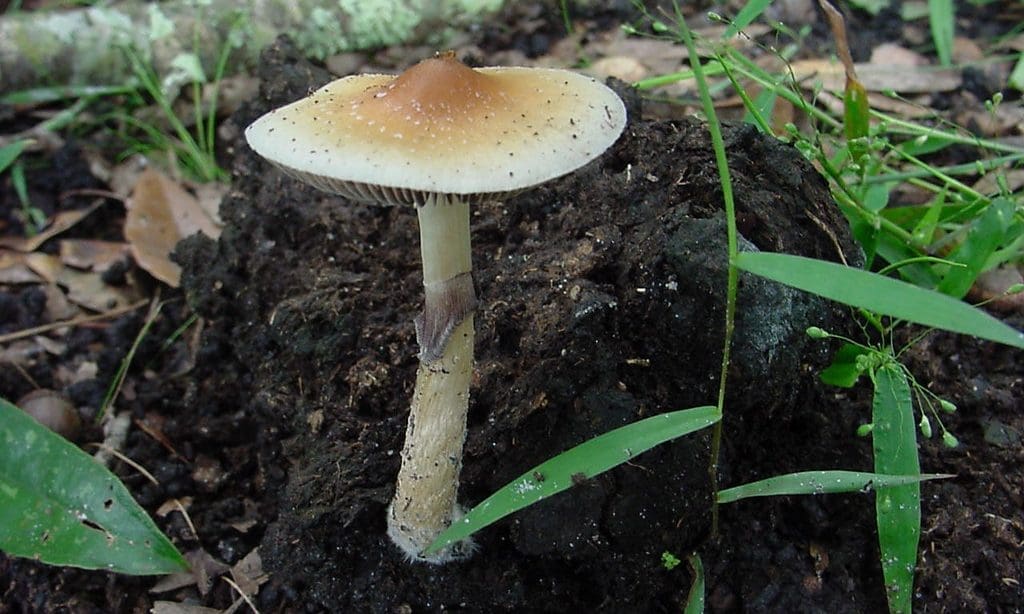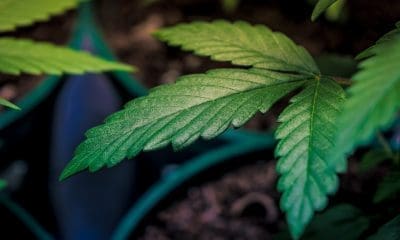Politics
California Psilocybin Initiative Won’t Be On 2024 Ballot After Activists Fall Short In Signatures For Third Cycle In A Row

A California campaign to put psilocybin legalization on the state’s November ballot says it did not secure enough signature to qualify in time for a deadline last week.
This is the third election cycle that Decriminalize California has made a play for the ballot, only to fall short amid what organizers say is a variety of complicating factors, including voter confusion over a failed legislative push for psychedelics decriminalization and separate reform campaigns also seeking to put their measures before voters.
In the end, the psilocybin campaign touted that its grassroots volunteers did secure a sizable collection of signatures, which they estimate to be 67 percent of what was required for ballot placement. However, the state did not formally verify the raw total of petitions so it’s not clear exactly how close to qualifying activists got this time around.
Ryan Munevar, campaign director of Decriminalize California, told Marijuana Moment in a phone interview that a future push is still possible, though he conceded that he feels “exhausted” after running the effort over multiple years, at points during a pandemic and always operating on a minimal budget for a statewide ballot campaign.
“As exhausting as this process has been, we’ve learned some extraordinary techniques that we’re going to put into effect for something much larger than this as it was, because psychedelics was basically a delivery mechanism for a better society,” he said. “That was the goal, at least.”
In addition to legalizing the possession, cultivation and sale of psilocybin for adults 21 and older, the Decriminalize California proposal would have required the state to establish a regulatory framework to allow health professionals to administer the psychedelic for therapeutic purposes.
This past year carried its own unique set of baggage for activists behind the effort. While they’ve taken lessons from past setbacks, they encountered new challenges as a separate campaign filed and then abruptly withdrew an initiative to create a $5 billion state agency tasked with funding and promoting psychedelics research.
A third campaign also entered the mix late last year, proposing to legalize the possession and cultivation of substances like psilocybin, LSD, MDMA, DMT, ibogaine and mescaline. People could buy them for therapeutic use with a doctor’s recommendation. Advocates for that measure still have time to gather and turn in signatures.
The California Legislative Analyst’s Office (LAO) has since released its review of that proposal, outlining not only the plan’s policy implications but also its potential fiscal impacts on the state—which the report calls “various” and “uncertain.”
In the background, voters saw headlines about a bill to decriminalize psychedelics and create a framework for regulated therapeutic access that advanced through the legislature and was subsequently vetoed by the governor. Now the sponsor of that measure, Sen. Scott Wiener (D), is preparing a dialed-back version with a Republican lead sponsor in the Assembly that is meant to address Gov. Gavin Newsom’s (D) concerns about the prior decriminalization provisions.
—
Marijuana Moment is tracking more than 1,000 cannabis, psychedelics and drug policy bills in state legislatures and Congress this year. Patreon supporters pledging at least $25/month get access to our interactive maps, charts and hearing calendar so they don’t miss any developments.
![]()
Learn more about our marijuana bill tracker and become a supporter on Patreon to get access.
—
That Republican cosponsor, Assemblymember Marie Waldron (R) has another even more narrowly tailored measure that cleared committee last week to create a state workgroup that would be tasked with exploring a regulatory framework to provide therapeutic access to psychedelics like psilocybin and ibogaine.
Add onto that “the overall burnout that persisted from the previous years, it proved too challenging for us as well,” Munevar said in a campaign update to supporters on Thursday.
“However, we built a magnificent system along the way and now have a huge database of pro-psychedelic voters in California that will be invaluable if we are ever crazy enough to give this another shot,” he said.
Some California municipalities, meanwhile, are pushing forward with reform on the local level. The city of Eureka, for example, adopted a resolution in October to decriminalize psychedelic plants and fungi and make enforcement of laws against personal use, cultivation and possession a low priority for police. It’s at least the fifth local jurisdiction in the state to embrace the policy change. Others include San Francisco, Oakland, Santa Cruz and Arcata.
Image courtesy of Kristie Gianopulos.
















